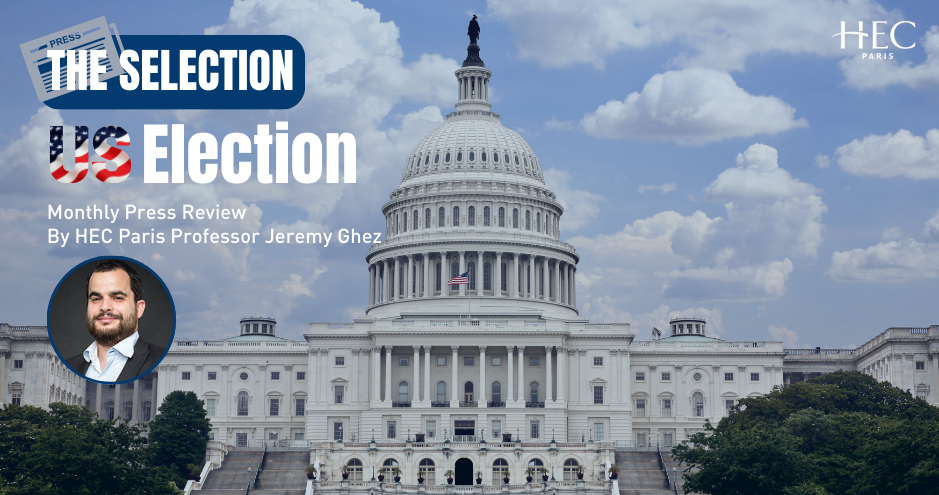Non-White voters turn away from the Democratic Party [THE SELECTION - Special US Election]
Non-White voters turn away from the Democratic Party [THE SELECTION - Special US Election]Each month until November 4, Jérémy Ghez, Professor of Economics and International Affairs at HEC Paris, analyzes the main issues at stake in the US presidential election through a selection of press articles, reports, podcasts or videos. This month, he explains how the partisan affiliation between white, black and Hispanic voters, which has remained relatively stable in recent years, is shifting.
There’s an unprecedented realignment happening right now in American politics. And if you don’t pay attention to it, you may be blindsided by quite a few developments in this election season for the US presidential campaign.
In a nutshell, American political observers used to believe that the Democratic party was the party of racial minorities. However, pre-election poll data for presidential elections suggests that non-white voters are increasingly turning to the Republican party. Both parties are splitting the vote 50/50 in 2024, whereas the Democrats had a 75-25 edge over Republicans as late as in 2020.
This is congruent with the fact that former president Trump’s support from blue-collar jobs is driving the candidate’s momentum in the polls. Education has become a better litmus test than race or income when it comes to voting behavior in the United States. The political lines in the US are therefore shifting towards a more unpredictable electoral future. The ultimate outcome of this election is anyone’s guess at this point.
By Jeremy Ghez, HEC Paris Professor of Economics and International Affairs. He is a specialist in geopolitics and American politics. He has covered previous US presidential elections for HEC and major international media.
Sources:
The Parties on the Eve of the 2016 Election: Two Coalitions, Moving Further Apart. Trends in voter party affiliation 1992-2016, Pew Research Center, September 13, 2016
Ahead of the [2016] presidential election, the demographic profiles of the Republican and Democratic parties are strikingly different. On key characteristics – especially race and ethnicity and religious affiliation – the two parties look less alike today than at any point over the last quarter-century.
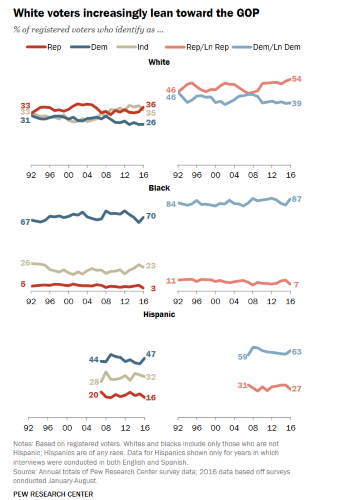
American politics is undergoing a racial realignment, by John Burn-Murdoch, Opinion Data Points, FT, March 8 2024
Democrats are rapidly losing non-white voters as the forces that ensured their support weaken
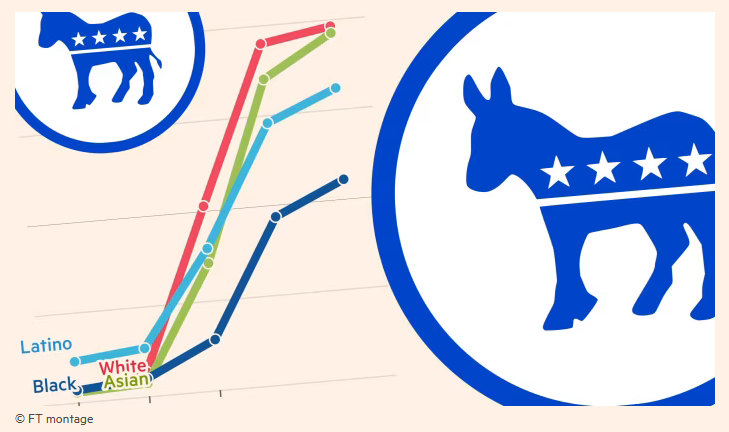
Biden Stakes Reputation on Blue-Collar Workers. Turns Out They're Trump Donors, By Jennah Haque, Madeline Campbell, and Bill Allison, Bloomberg, 22 février 2024
Mechanics and truck drivers give to Trump, while professors and scientists support Biden.
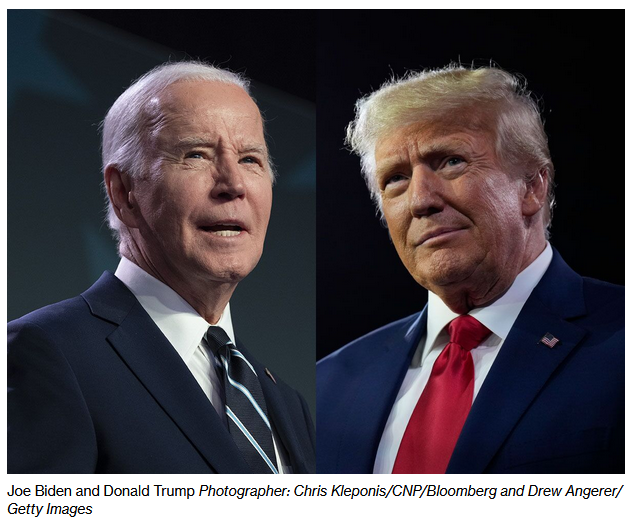
Young and non-White voters have shifted right since 2020, Analysis by Philip Bump, February 7, 2024, The Washington Post
For years, it has been assumed that the Democratic Party had a distinct demographic advantage over the Republicans: Younger and non-White voters — two groups that have some significant overlap — preferred Democratic candidates by wide margins. Over time, and as America grew more diverse, that might lead to a dominant, left-leaning coalition.
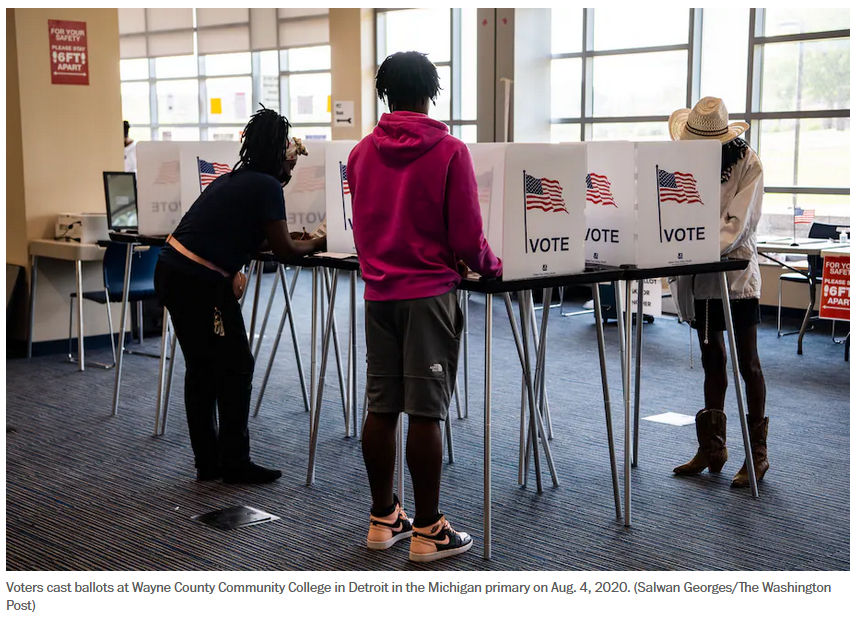
Captured: Jack Beatty on the fall in Black and Hispanic working-class support for Democrats, by Jack Beatty, Meghna Chakrabarti and Tim Skoog, September 21, 2023, On Point, WBUR
Jack Beatty offers his unique perspective and insight on aspects of current political life in the U.S.
In this episode, what’s behind a raft of polls showing a deterioration in support from a key voting block for President Biden in 2024. Plus, listeners tell us why they turned away from causes that were once part of their identity.
